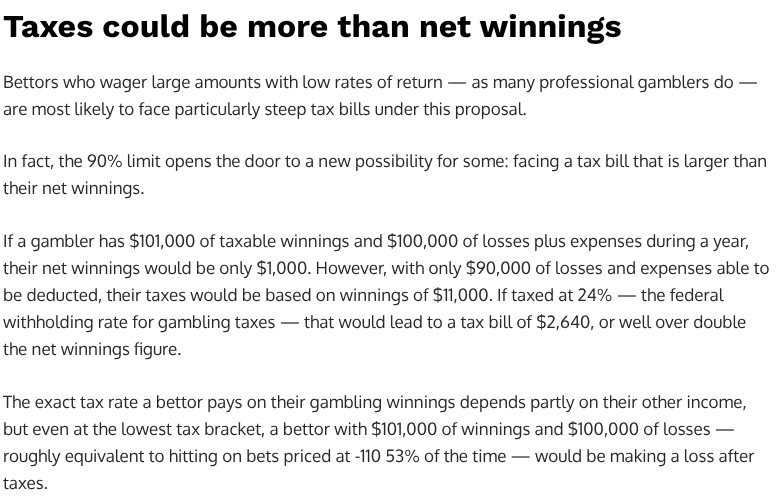
Congresswoman Dina Titus of Nevada will introduce an amendment that would strike a provision in the United States Senate version of the so-called “One Big Beautiful Bill” (OBBB) that many consider potentially devastating to gamblers and by extension the gambling industry.
With Republicans in the U.S. House of Representative struggling to find enough votes to advance through procedural rules vote rounds on Wednesday, it’s unclear when the Democrat from Reno will have her chance.
The Senate version of the OBBB differed from the initial House of Representatives bill by adding a provision that limited the amount bettors could deduct for wagering losses. The Senate would reduce the figure to 90% of annual winnings. Current law allows gamblers to deduct 100% of losses unless they exceed their winnings for a given tax year.
The 90% figure would also be applied to non-loss expenses, including subscriptions to data services that are the price of doing business for professional gamblers. These types of services are currently taxed separately.
The Senate version, which includes controversial cuts to the social safety net, passed, 51-50, with three Republicans defecting and the tie broken by Vice President JD Vance.
InGame detailed an example of how the Senate provision, if it became law, could saddle gamblers with a tax burden greater than their winnings:

Revenue allure could trouble Titus fix
With the Senate version of the OBBB set to potentially increase the federal debt by as much as $3 trillion, according to the Congressional Budget Office, the idea of clawing back some cash with what some view as a tweaked “sin tax” could be popular outside of the gambling industry.
This figures to complicate Titus’ efforts at building consensus, especially if proponents of the deduction change don’t realize or care that the gambling industry, according to a 2023 study by the American Gaming Association, contributed $328.6 billion to the United States economy, employed 1.8 million, and pumped $53 billion into federal state and local tax coffers.
Those figures would seem likely to shrink if some gamblers can no longer afford to gamble. Other contend the tax change could be a boon for unregulated, untaxed offshore gambling sites.
Social media response to Titus’ promise followed neatly along the line of those who gamble and who don’t. Some pondered why the tax code includes guardrails for those who entertain themselves by gambling instead of other activities.
And as usual, the burgeoning business of sports event contracts entered the chat.
The post Titus Promises ‘Fix’ To Senate Gambling Tax appeared first on Casino Reports.

 4 months ago
46
4 months ago
46




















